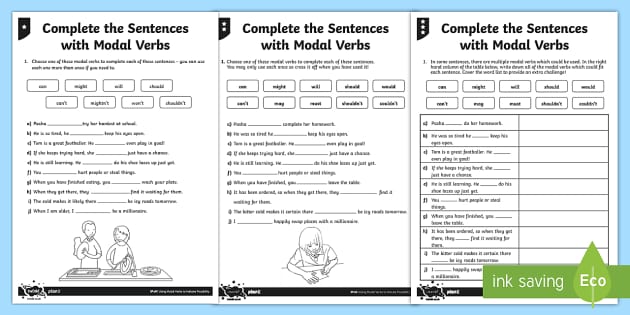Generics, Frequency Adverbs, and Probability Ariel Cohen Department of Foreign Literatures and Linguistics Ben Gurion University For the true idea, the generic idea, cannot result from an isolated concep-tion; there must be a series (P. Proudhon, The Philosophy of Misery). Abstract Generics and frequency statements are puzzling phenomena: they. Adverbs of possibility show how sure or unsure we are about something. Include words like certainly, definitely, probably, maybe, perhaps. When there is no auxiliary in a sentence,.ly adverbs come before the verb. In sentences with main verb be or an auxiliary, -ly adverbs can be placed before or after be or the auxiliary. Main content: Adverbs of probability Other contents: Adverbs of probability Add to my workbooks (3) Download file pdf Embed in my website or blog Add to Google Classroom Add to Microsoft Teams Share through Whatsapp. Adverbs of possibility show how sure or unsure we are about something. Include words like certainly, definitely, probably, maybe, perhaps. When there is no auxiliary in a sentence,.ly adverbs come before the verb. In sentences with main verb be or an auxiliary, -ly adverbs can. Adverbs of possibility 1. EXERCISE: ORDER THE WORDS 2. EXERCISE: ORDER THE WORDS 3. EXERCISE: ORDER THE WORDS.
- Adverbs Of Possibility Exercises Pdf Exercises
- Adverbs Of Possibility Exercises Pdf Answers
- Adverbs Of Possibility Exercises Pdf Answers
Level: beginner
We use adverbials of probability to show how certain we are about something. The commonest adverbials of probability are:
| certainly | definitely | maybe | possibly |
| clearly | obviously | perhaps | probably |
- Adverbials of probability 1
maybeand perhapsusually come at the beginning of the clause:
Perhaps the weather will be fine.
Maybe it won't rain.
Other adverbs of possibility usually come in front of the main verb:
He is certainly coming to the party.
Will they definitelybe there?
We will possiblycometo England next year.
or afterthe present simple or past simple of be:
They aredefinitely at home.
She wasobviously very surprised.
But these adverbs sometimes come at the beginning of a clause for emphasis:
Obviously she was very surprised.
Possibly we will come to England next year.
- Adverbials of probability 2
- Adverbials of probability 3
- Log in or register to post comments
1.Use of Modal Verbs of Probability
We can use these modal verbs when we want to to say how sure we are that something happened / is happening / will happen. We choose the modal verb depending on how sure we are.
2. Talking about probability in the present:
must / might / could / may / can’t + infinitive
For example:
Sitting at home and the phone rings John guesses:
- That mustbe Susan she said she would call about this time. (I’m fairly certain it is her.)
- It might be a wrong number. (maybe)
- It could be my brother, he hasn’t called in a while. (maybe)
- It maybe my boss. I didn’t go to work today. (maybe)
- That can’tbe Alan he is flying to America at the moment. (It is impossible)

Notice that the opposite of ‘must‘ is ‘can’t in this case.
Will / won’t

We use will and won’t when we are very sure:
- She’llbe at the airport by now.
- He won’tbe here for a few hours, he has called and said he is delayed.
Adverbs Of Possibility Exercises Pdf Exercises
Should / shouldn’t
Should and shouldn’t are used to make an assumption about what is true or will be true in the future, and to show you have reasons for your suggestion:
- It’s nearly six o’clock. They should be here soon.
- The traffic is fine it shouldn’t take more than an hour to get here.
This use of should isn’t usually used for negative events. Instead, it’s a better idea to use will:
- There will be a lot of traffic (not: ‘should be’).
Can
Can is used for something that is generally possible, something we know sometimes happens:
- Itcan be very cold in Scotland in winter.
Can is not used to talk about specific possibilities:
- He could be on the train (not: ‘can be’).
3. Using modal verbs to talk about probability in the past:
must / might / could / may / can’t + have + past participle
- must have + past participle
- might / might not have + past participle
- could / couldn’t have + past participle
- may / may not have + past participle
- can’t have + past participle
For example: Susan didn’t arrive for a meeting last night. John thinks about the possibilities:
- She must have forgotten about our meeting.
- She might have worked late.
- She could have got lost.
- She may have felt ill.
- She can’t have stayed at home, she always goes out on Fridays.
Will / won’t + have + past participle
Will and won’t / will not + have + past participle are used for past certainty (compare with present use of ‘will’ above):
- The plane will have landed by now.
Should + have + past participle
Should + have + past participle can be used to make an assumption about something that has probably happened, if everything is as we expect (compare with present use of ‘should’ above):
- It’s nearly ten o’clock. They should have arrived by now.
Could
We can use could + infinitive to talk about a general possibility in the past (compare with the use of ‘can’ above):
- Life could be hard in the 19th century.
This is not used to talk about specific possibilities in the past (instead we use could + have + past participle):
Adverbs Of Possibility Exercises Pdf Answers
- She couldhave been waiting for me at the wrong place. (not: ‘could be’. As this is a specific possibility in the present tense)